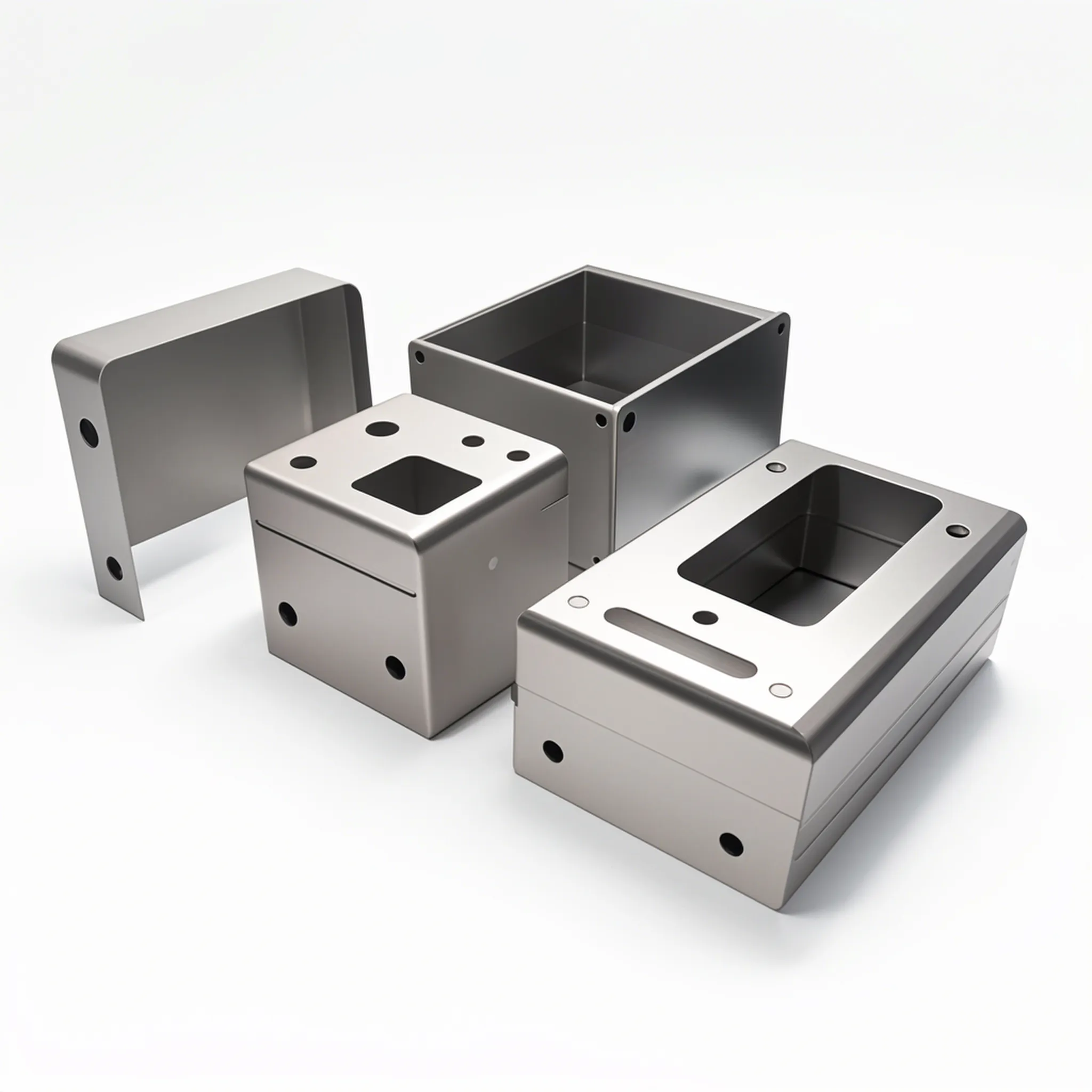In modern industries, electronics are at the heart of innovation, control, and communication. From consumer devices to industrial automation and medical systems, electronic components require safe and durable housing. Stainless Steel Enclosures provide one of the most effective solutions for protection, performance, and reliability. By using stainless steel, manufacturers ensure resistance to corrosion, structural integrity, and long service life. These enclosures are also highly versatile, offering a balance of strength, aesthetics, and ease of customization that makes them ideal for today’s demanding applications.
The significance of Stainless Steel Enclosures goes far beyond simple protection. They contribute to thermal management, prevent electromagnetic interference, and ensure compliance with safety standards. When designed and manufactured with precision, they help extend the lifespan of electronic systems and reduce maintenance costs, making them indispensable for modern electronic infrastructure.
One of the greatest strengths of Stainless Steel Enclosures lies in their natural resistance to corrosion. Stainless steel grades such as 304 and 316 contain chromium, which forms a protective oxide layer. This prevents rust, even when exposed to moisture, chemicals, or industrial environments. The durability of Stainless Steel Enclosures ensures they can withstand years of service without degradation, making them particularly valuable in sectors such as telecommunications, energy distribution, and outdoor electronics.
Stainless Steel Enclosures provide exceptional structural strength while maintaining a practical weight for installation and maintenance. They can handle external stress, vibration, and impact without bending or breaking. This strength-to-weight balance makes them suitable for applications ranging from heavy-duty industrial equipment to precision instruments. Their ability to withstand physical stress while protecting delicate electronics highlights their critical role in system reliability.

Stainless Steel Enclosures can be produced through various fabrication methods such as stamping, laser cutting, and CNC bending. These processes allow for precise shapes, custom cutouts, and complex designs tailored to the specific requirements of the equipment. Whether the need is for a simple junction box or a highly engineered server enclosure, stainless steel fabrication supports customization at every level. Engineers can integrate ventilation slots, mounting brackets, or cable entries without compromising the enclosure’s strength.
While functionality is critical, Stainless Steel Enclosures also deliver aesthetic appeal. Stainless steel naturally provides a clean, professional look. Additional finishing options include brushed, polished, or powder-coated surfaces. These finishes not only enhance appearance but also improve resistance to scratches and environmental wear. For electronics used in consumer-facing environments, stainless steel creates an image of quality and sophistication while preserving practicality.
Electronics generate heat during operation, and managing this heat is essential to avoid component damage. Stainless Steel Enclosures can be designed with perforations, vents, or cooling systems integrated directly into their structure. By combining thermal conductivity with design flexibility, they enable efficient heat dissipation. Properly designed Stainless Steel Enclosures prevent overheating, ensuring consistent performance and longer component life.
Electromagnetic interference can disrupt electronic systems, leading to malfunction or reduced efficiency. Stainless steel provides a natural barrier against electromagnetic interference. With appropriate thickness and enclosure design, Stainless Steel Enclosures can significantly reduce EMI exposure. This makes them crucial in sensitive applications such as medical equipment, aerospace systems, and data centers, where reliability is non-negotiable.
In industrial automation, Stainless Steel Enclosures are widely used to house control systems, sensors, and communication devices. Their durability allows them to withstand dusty, humid, or chemically aggressive environments. They maintain performance even when exposed to high mechanical stress, making them indispensable in factories, processing plants, and energy systems.
Precision and cleanliness are vital in medical environments. Stainless Steel Enclosures are often chosen because they are easy to sterilize and resistant to contamination. Their smooth surfaces prevent bacterial growth, and their durability ensures reliable operation of sensitive devices like diagnostic machines, imaging systems, and laboratory analyzers.
Parameter |
Stainless Steel 304 |
Stainless Steel 316 |
Tensile Strength |
515 MPa |
620 MPa |
Yield Strength |
205 MPa |
290 MPa |
Elongation |
40% |
50% |
Hardness (Brinell) |
201 |
217 |
Corrosion Resistance |
High |
Very High (especially saltwater environments) |
Fabrication Suitability |
Excellent |
Excellent |
Common Applications |
Indoor and general-purpose enclosures |
Marine, chemical, and harsh outdoor environments |
This table demonstrates how stainless steel grades deliver different performance levels. By selecting the appropriate grade, Stainless Steel Enclosures can be optimized for a wide range of applications, from indoor use to extreme outdoor conditions.
Although Stainless Steel Enclosures may have higher upfront costs compared to other materials, they provide significant long-term savings. Their corrosion resistance and mechanical strength minimize the need for repairs and replacements. This makes them a cost-effective solution when evaluating the total lifecycle cost of an electronic system. Choosing stainless steel ensures both financial and operational benefits over time.
The longevity of Stainless Steel Enclosures directly impacts the lifespan of the electronics they protect. By preventing corrosion, resisting impact, and supporting environmental resilience, they allow electronics to function in their intended environments for many years. This reliability reduces downtime and increases overall productivity, particularly in mission-critical industries where system failures can be costly.
Stainless Steel Enclosures are compatible with advanced manufacturing technologies such as precision stamping, CNC machining, and laser cutting. These processes guarantee consistency and tight tolerances, ensuring that enclosures meet exact specifications. The adaptability of stainless steel to modern fabrication processes makes it the preferred choice for industries that demand precision and scalability.
Stainless steel is fully recyclable without losing quality. This sustainability factor adds to the appeal of Stainless Steel Enclosures in industries focused on environmental responsibility. By using stainless steel, companies reduce waste and contribute to greener manufacturing practices while maintaining high standards of product performance.
To achieve the best results, clear design specifications are essential. Manufacturers require precise information on material grade, thickness, dimensions, and surface finish. Providing detailed drawings and parameters ensures that Stainless Steel Enclosures are manufactured to exact requirements, eliminating costly adjustments during production.
Prototyping is a valuable stage in the development of Stainless Steel Enclosures. Small batches or test enclosures allow engineers to evaluate fit, thermal performance, and durability. Prototyping ensures that potential issues are identified early, reducing risk before mass production begins. This step is particularly critical for high-precision industries.
What makes Stainless Steel Enclosures superior to other materials
Stainless Steel Enclosures offer unmatched corrosion resistance, mechanical strength, and aesthetic appeal. Unlike plastic or mild steel, they provide long-term durability, reduced maintenance costs, and enhanced protection in harsh environments.
Which stainless steel grade is best for electronic enclosures
Grade 304 is suitable for most indoor and general-purpose applications, while grade 316 is preferred for marine, chemical, or highly corrosive environments. The choice depends on the conditions where the enclosure will be used.
How do Stainless Steel Enclosures help with heat management
They can be designed with vents, perforations, or integrated cooling systems. Stainless steel’s thermal properties, combined with thoughtful design, prevent overheating and ensure consistent performance of sensitive electronics.
Are Stainless Steel Enclosures cost-effective in the long run
Yes. While initial costs may be higher, their long service life and low maintenance requirements reduce total ownership costs. Over time, they prove to be more cost-effective than alternatives that require frequent replacement.


Copyright © 2024 by Xiamen Tongchengjianhui Industry & Trade Co., Ltd. - Privacy policy